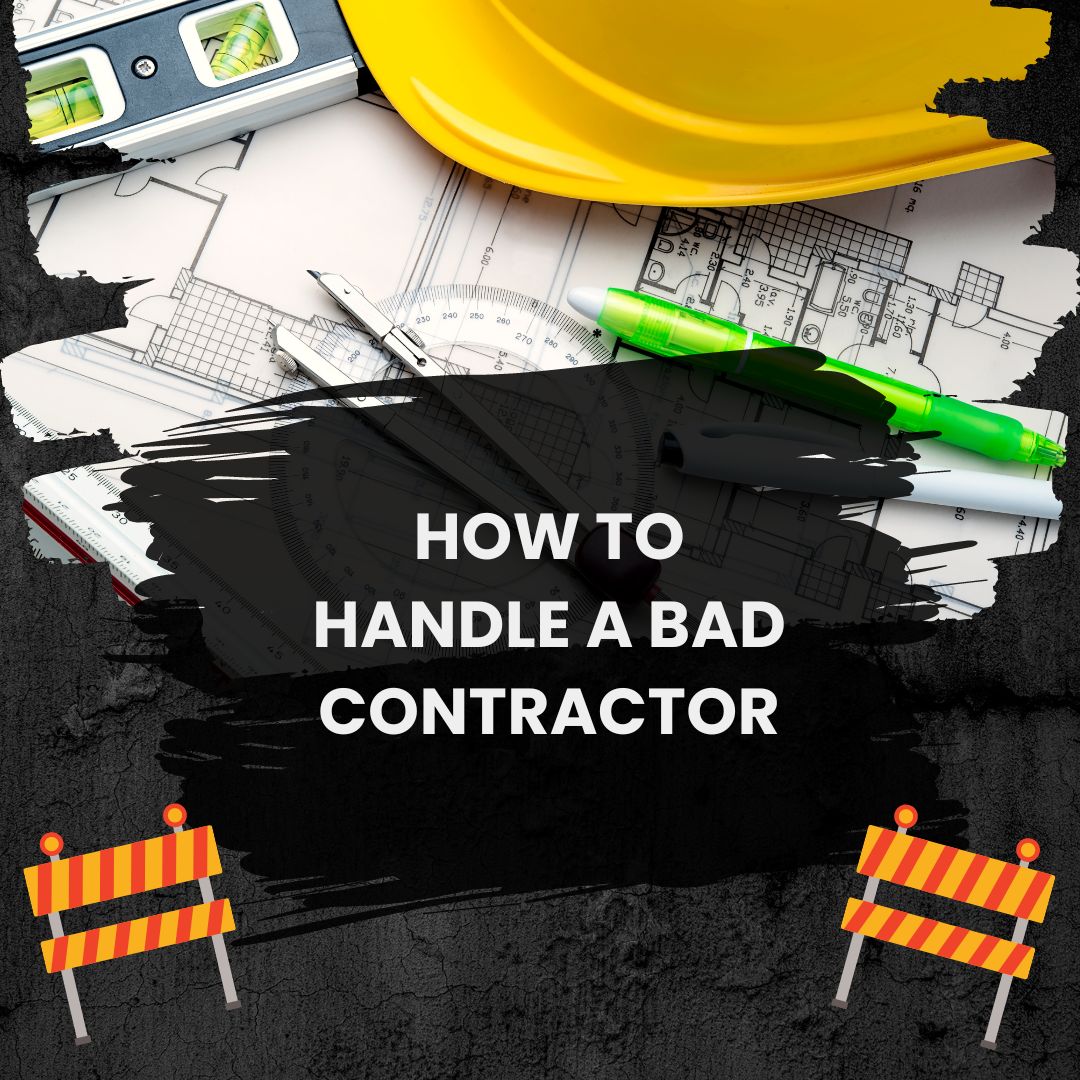How To Handle Bad Contractors
Working with contractors can be a great way to get projects done efficiently and with expertise. However, not all contractors are created equal and sometimes you may find yourself dealing with a bad one. This can be frustrating, but there are steps you can take to handle these situations effectively.
Identify Signs of a Bad Contractor
Before hiring any contractor, it’s important to do your research and thoroughly vet them. There are certain red flags that can indicate a bad contractor, such as:
- Lack of licenses or insurance
- Poor communication skills
- Unprofessional behavior or appearance
- Constantly missing deadlines or making excuses for delays
- Low-quality workmanship
- Asking for payment upfront or pressuring for additional payments
If you notice any of these signs, it’s best to avoid working with that contractor.
Set Clear Expectations and Contracts
One of the best ways to handle bad contractors is to prevent issues from arising in the first place. This can be achieved by setting clear expectations and having a detailed contract before starting any work. Make sure all parties are on the same page regarding project scope, timeline, payment schedule, and expectations for quality of work.
Communicate Effectively
Communication is key in any relationship, including one with a contractor. If you start noticing issues or concerns with their work, it’s important to address them as soon as possible. Keep an open line of communication and express your expectations clearly. This can help resolve issues before they escalate.
Document Everything
In case the situation with a bad contractor does escalate, it’s important to have proper documentation to support your claims. Keep records of all communication, contracts, and payments made. Take photos or videos of any subpar work done by the contractor. This will serve as evidence if you need to take legal action.
Address Issues and Seek Solutions
If a contractor is not meeting expectations or causing problems, don’t hesitate to address these issues directly with them. Be specific about what needs improvement and give them a chance to fix the issue. If necessary, seek solutions together such as hiring a third-party inspector to assess the work or bringing in a mediator to help facilitate communication.
Know Your Rights
As a client, you have rights and protections when working with contractors. Familiarize yourself with consumer protection laws and make sure the contractor is following them. If you feel they are breaching their contract or acting unfairly, seek legal advice and know your options for recourse.
Additional Tips for Dealing with Bad Contractors
In addition to the above strategies, here are some other tips that can help you deal with bad contractors:
- Don’t make any final payments until all work is completed satisfactorily.
- Put everything in writing, including any changes made to the project and their impact on the timeline and budget.
- Consider using a payment schedule based on milestones rather than paying upfront or in full at the end of the project.
- Get multiple bids from different contractors to compare prices and services.
- Ask for references and follow up with them before hiring a contractor.
- Trust your instincts – if something doesn’t feel right, it’s best to avoid working with that contractor.
By incorporating these additional tips into your approach, you can further protect yourself from potential issues with bad contractors. Remember, communication and documentation are key when dealing with any type of conflict, so make sure to keep those lines open and record everything to support your case if needed.
In conclusion,
Dealing with a bad contractor can be a frustrating and stressful experience, but it’s important to handle the situation calmly and effectively. By doing your research, setting clear expectations, communicating openly, documenting everything, addressing issues directly, and knowing your rights, you can navigate these situations confidently and protect yourself from potential problems.
Remember, it’s always better to prevent issues from arising, but if they do occur, take the necessary steps to handle them and move on to find a more reliable contractor for your future projects. So, being aware of these tips would help you in choosing the right contractor for your work.

